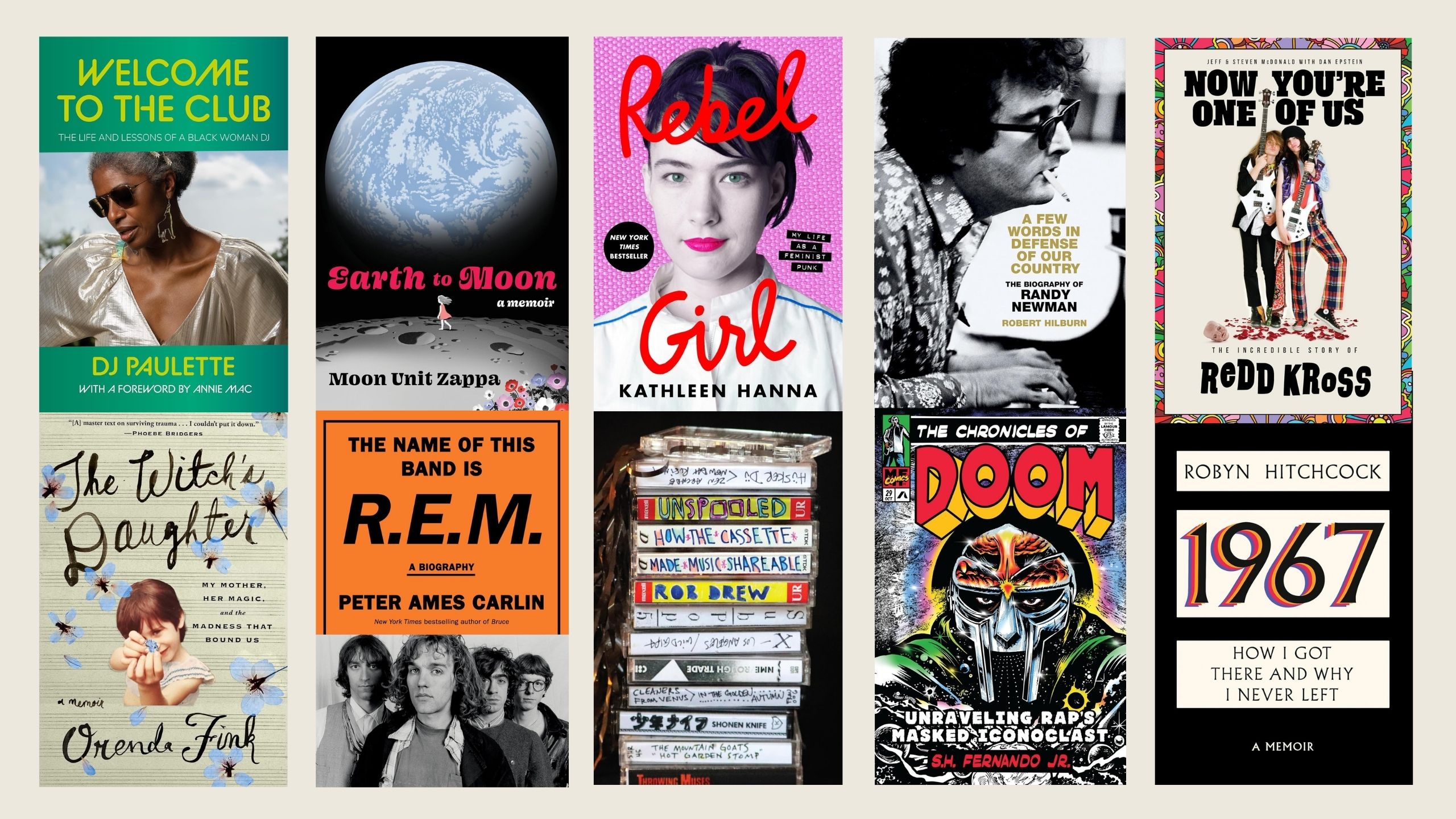Where many of this year’s best music documentaries explored bygone scenes, trends, and events across various decades and genres with a journalistic bent, our favorite music books of 2024 tended to be a little more personal. Whether it be remembering a colossal, mysterious figure in hip-hop whose recent death shook the underground scene, getting the long-anticipated tea on a famously unconventional household long in the musical spotlight, or permitting two of LA glam-punk’s most famous enfants terribles space to tell their unique story of success at an incredibly young age, these books provided a certain access we’ve yearned for for decades.
Beyond that, a few more-conventional biographies (both authorized and otherwise) caught our eye, as well as a memoir from a lesser-known figure in rock music and an epic paean to bygone mediums of music consumption and distribution. Find our full list of the 10 best music books below.
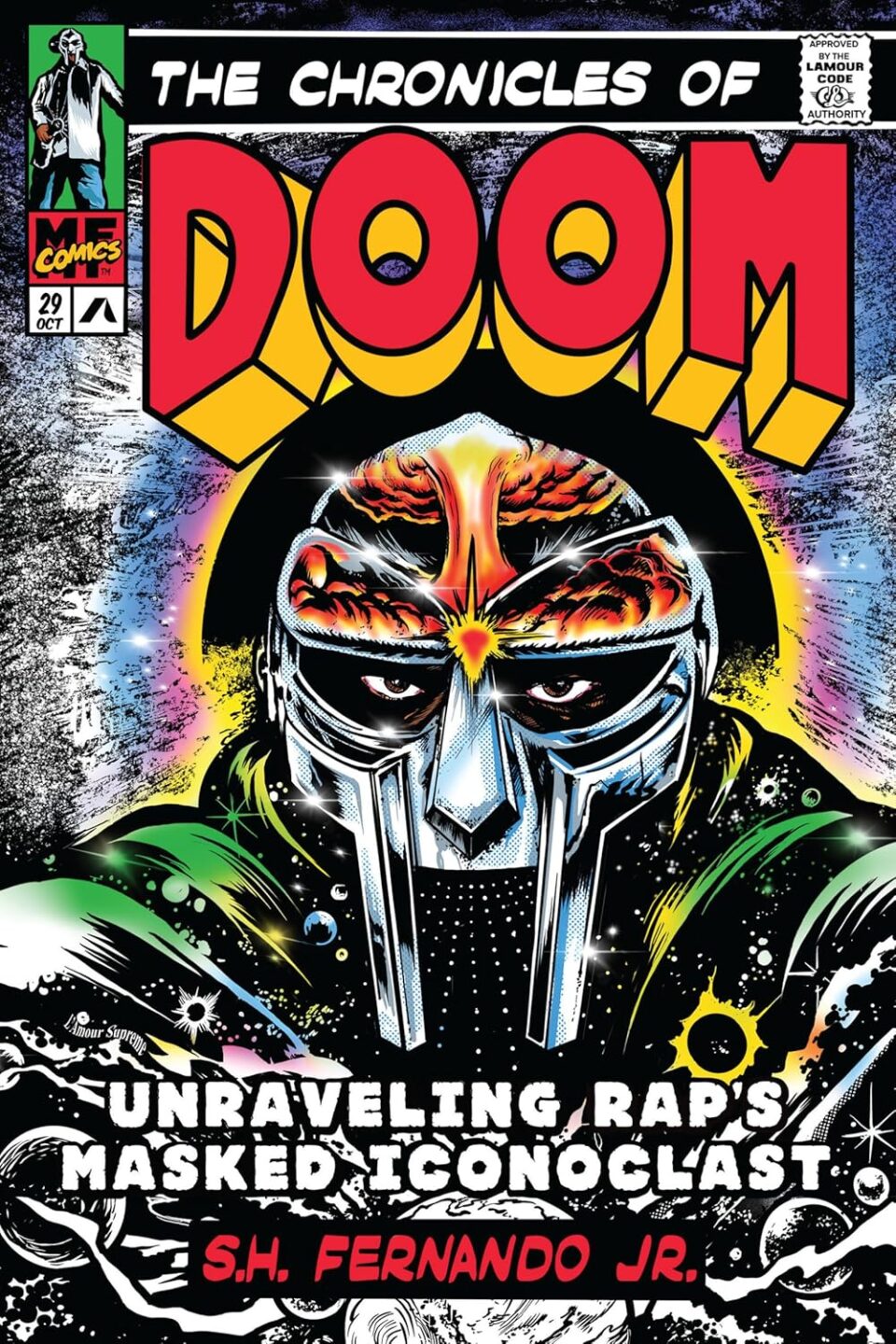
The Chronicles of DOOM: Unraveling Rap’s Masked Iconoclast by S.H. Fernando Jr.
What do you pen for an encore if you’re the author behind From the Streets of Shaolin: The Wu-Tang Saga and that Staten Island ensemble’s mix of neighborhood heroics, street doctrine, and karate cinema? If you’re writer/musician S.H. Fernando Jr., you head to the doubly eccentric and enigmatic likes of rap’s finest anonymous cartoon supervillain MF DOOM in order to unmask the late, great, London-born hip-hop avatar with The Chronicles of DOOM. Nearly as avant-garde, multi-versed, and unknowable as San Francisco’s The Residents, but equally experimental in his verse and musicality, DOOM seemed like an island unto himself. Yes, he teamed with another now-late hip-hop genius, J Dilla, as well as Wu-Tang’s own Ghostface Killah, serial collaborator Danger Mouse, and another classic rap odd fellow in Madlib. But DOOM was just as uncategorizable and unknowable to them as he was to his fanbase. Ultimately, Fernando uses DOOM’s covert dramas, futurist-lucha wrestling masks, and third-person lyrics as an act of supreme cartoon heroism beyond anything MCU-ish. — A.D. Amorosi
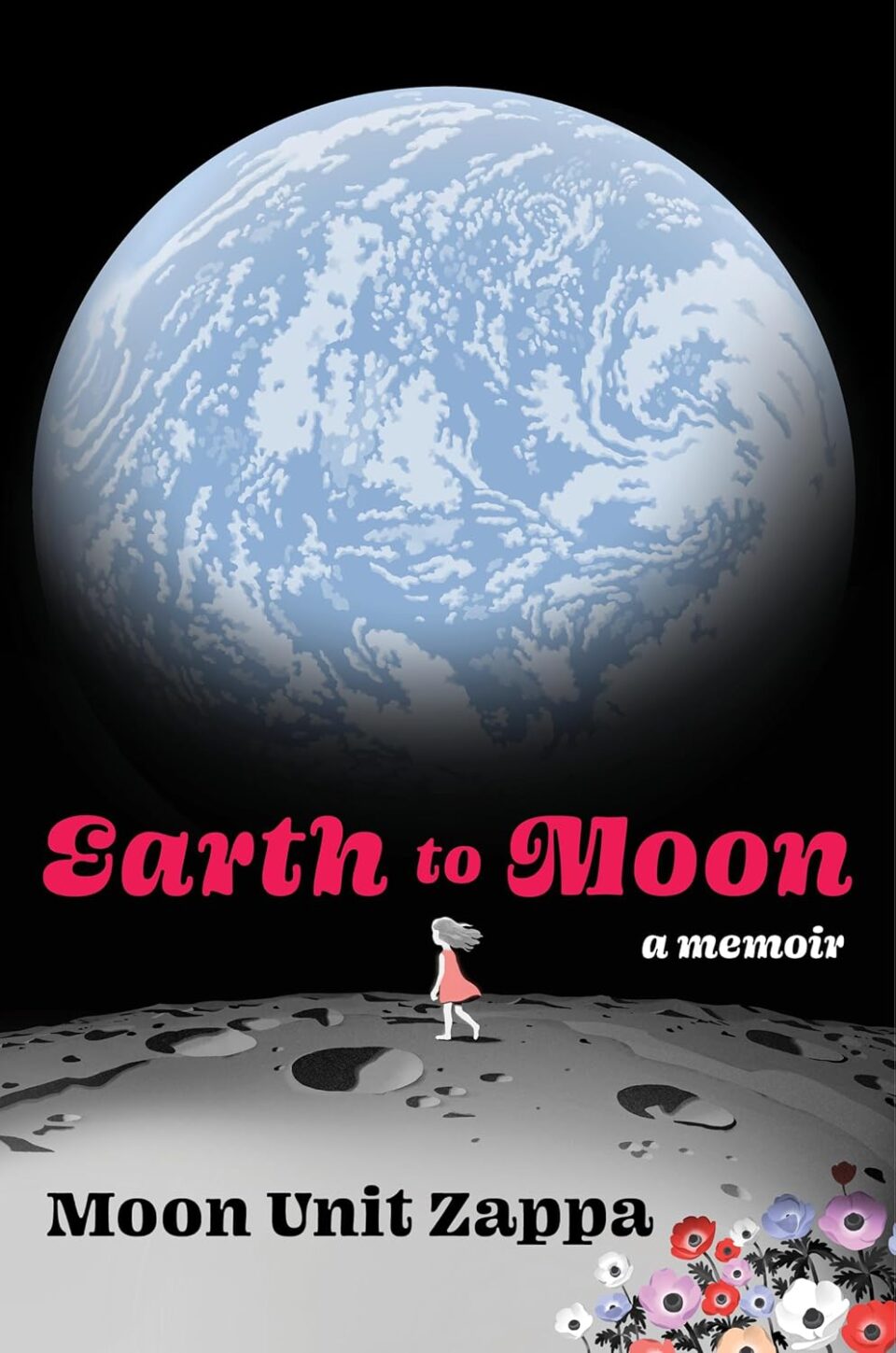
Earth to Moon: A Memoir by Moon Unit Zappa
We’ve been waiting years for one of the Zappa kids to crack and spill the real tea on what it was like growing up in that household. This year, Moon Unit, the clan’s firstborn and arguably most wronged, revealed all in Earth to Moon: A Memoir. Zappa rips her skin off in this honest and painful telling of her life story as the daughter of the revered Frank Zappa and his beleaguered wife, Gail. Tales of groupies and unconventional (to put it mildly) home life have been gossiped about for years, but when hearing it from the perspective of a young girl, it’s a lot less zany and a lot more heartbreaking. What we saw in the “Valley Girl” era was a comical song charmingly created by a father and daughter. What Moon experienced was the drudgery of a fame she didn’t ask for, and not-particularly-quality time with her father. The real gut punch is how Moon was regularly made to sign contracts binding her to the “family business,” but when Gail passed, Moon was left with nothing, by design. It’s a riveting read that by the close of the book will want you to become best friends with its author. — Lily Moayeri
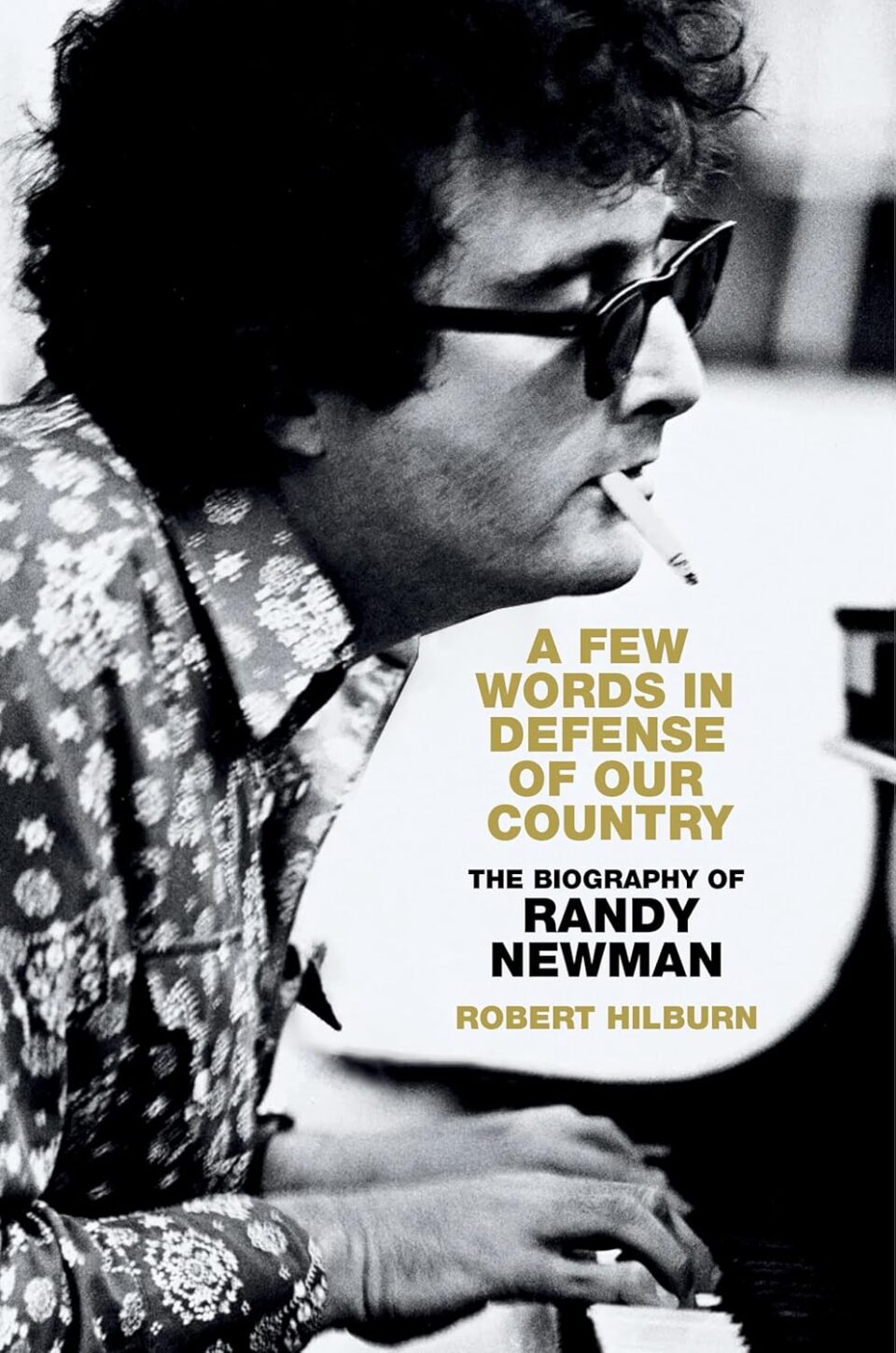
A Few Words in Defense of Our Country: The Biography of Randy Newman by Robert Hilburn
Since leaving the Los Angeles Times in 2005 as pop music critic, Robert Hilburn has produced essential biographies on some of America’s great singer-songwriters: Johnny Cash, Paul Simon, and, now, Randy Newman. He had a history with each of them, but Newman may be the most confounding of all, a next-generation artist from a family of composers who turned to pop songwriting that’s, at its best, both disarming and subversive. There’s some irony that two of his best-known songs are “Short People” and “I Love L.A.,” amusing hits that barely hint at the brilliance of biting masterworks like “Sail Away” and “Louisiana 1927.” Newman is also known for gorgeous film scores, from the triumphant The Natural and melancholy Ragtime to his hugely popular (and Oscar-winning) work for Pixar. Hilburn gets the normally reticent Newman to discuss the personal stories behind the songs. And there are testimonials from fellow songwriters here, including Bob Dylan, and insight from John Williams about film composing. It’s a life and career explored with care, explaining this tortured wiseguy who pushed past self-doubt to create some of the most lasting songs of his generation. — Steve Appleford
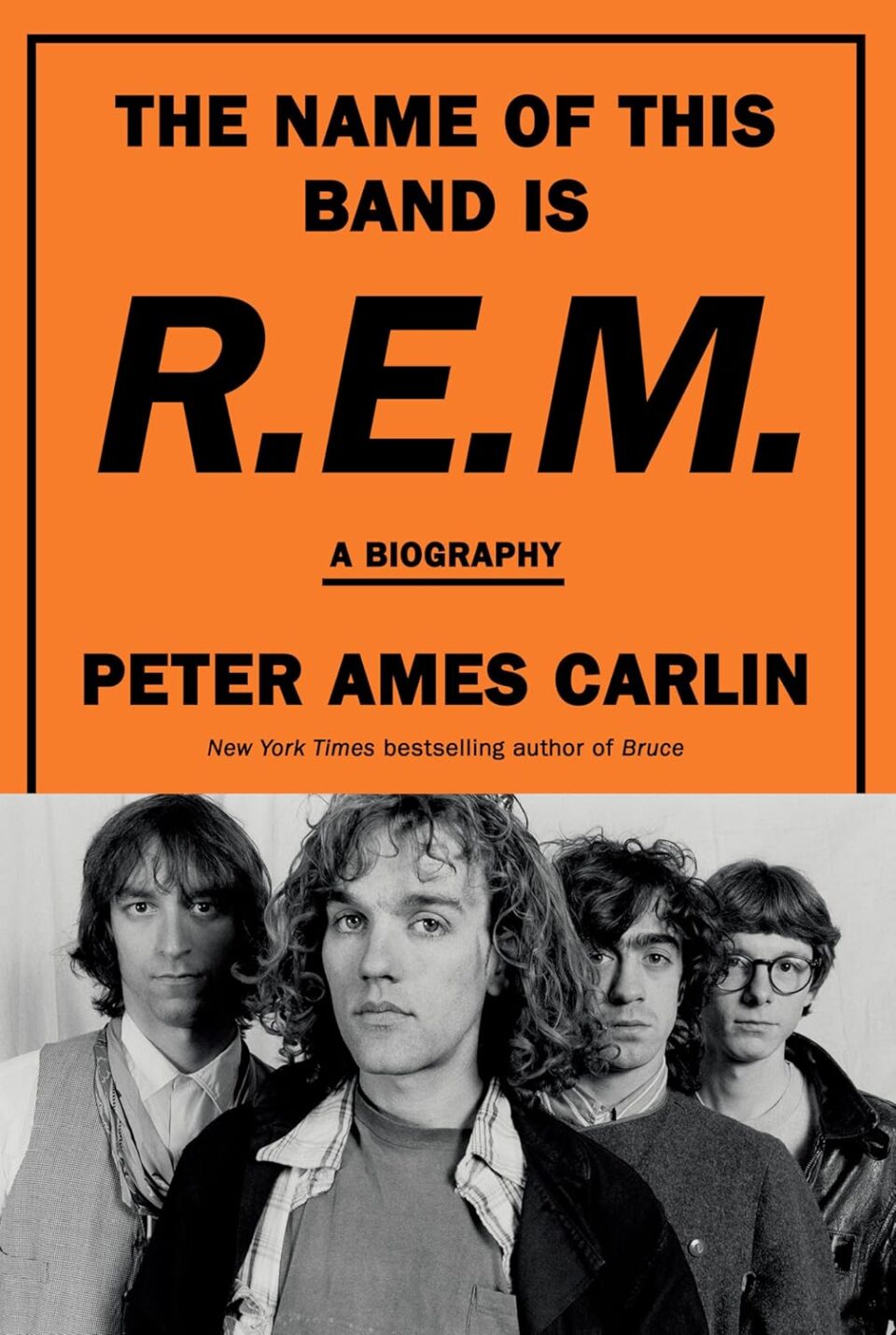
The Name of This Band Is R.E.M.: A Biography by Peter Ames Carlin
Plenty of books have been written about R.E.M. (including one by this writer: R.E.M. Inside Out: The Stories Behind Every Song), yet noted biographer Peter Ames Carlin manages to unearth new tidbits about the band members’ formative years through his extensive research and interviews. He tells the story of the band’s rise to fame in an artful fashion, while vividly describing the sound of their music and feel of their performances. This is an impressive feat, considering none of the band’s members agreed to be interviewed for the book, though guitarist Peter Buck did participate in texting sessions with Ames, who’s also written bios on Bruce Springsteen, Paul Simon, and Brian Wilson. While Ames doesn’t engage in myth-breaking to the level that John Hunter did in 2022’s self-published Maps and Legends: The Story of R.E.M., he’s not afraid to take the band to task for what he deems missteps. He writes that the song “Blue,” the final track on the band’s last album, Collapse Into Now, “falls flat,” but the career-ending moment is saved by the reprise of “Discoverer,” “which stands among the most powerful pieces of music they ever recorded.” Ames strikes a similar balance through much of the book, which is an essential read for fans old and new. — Craig Rosen
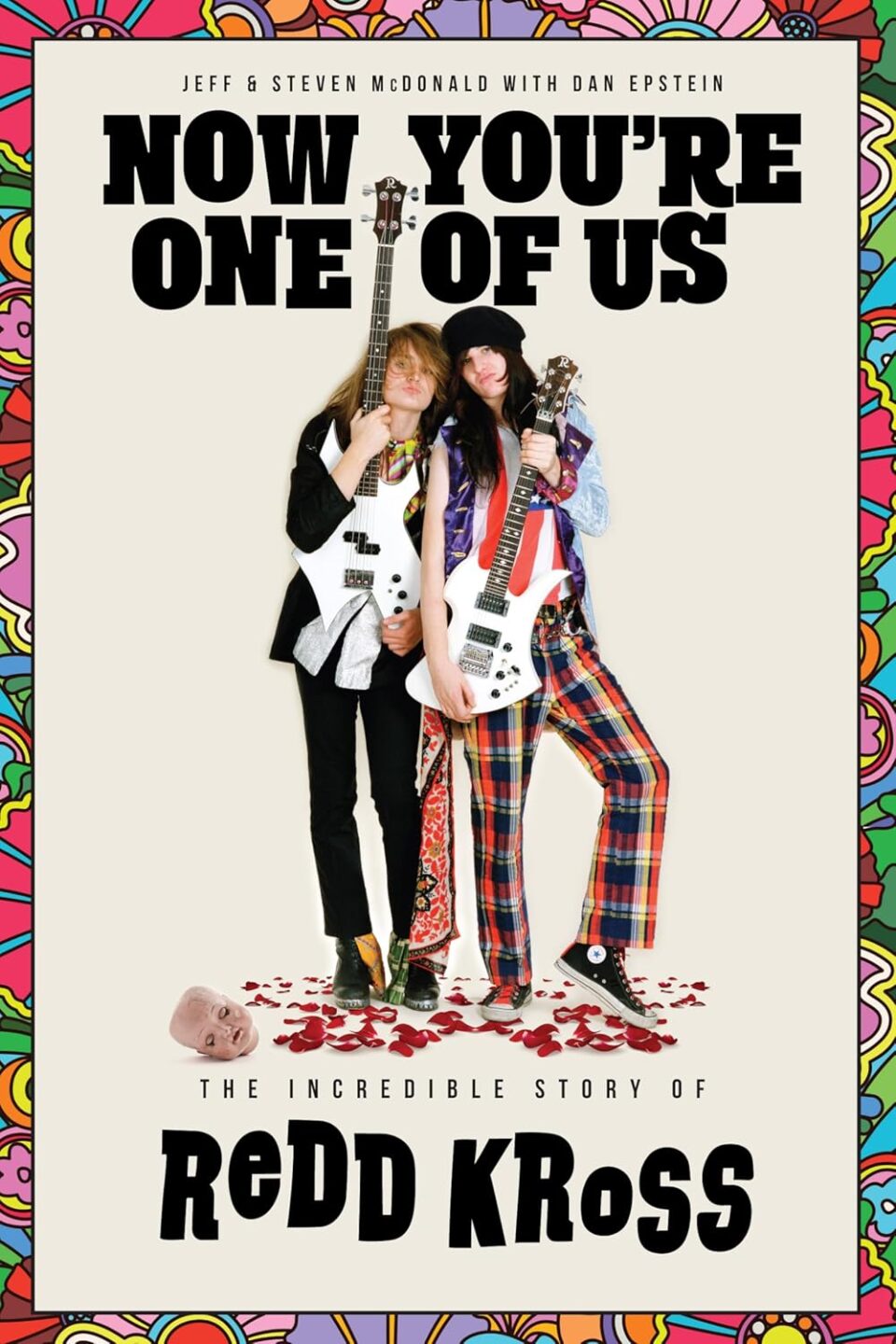
Now You’re One of Us: The Incredible Story of Redd Kross by Jeff & Steve McDonald with Dan Epstein
If Andrew Reich’s 87-minute documentary Born Innocent: The Redd Kross Story and the band’s self-titled double-album—both released this year—didn’t fulfill your appetite for material by and about the brothers McDonald, this 320-page book surely will. Journalist Dan Epstein collaborated with Jeff and Steven for a deep dive on the sibling duo’s lives and career. Epstein serves as the scene-setter and offers extra context while allowing Jeff and Steven to tell their stories in their own words, oral history style. The always-colorful McDonald brothers don’t disappoint, kicking things off by sharing their tongue-in-cheek apology to hair metal kings Poison as a preface, with a foreword by Jeff’s wife, Go-Go’s guitarist/songwriter Charlotte Caffey. From there, we’re treated to childhood memories of The Beatles, The Brady Bunch, and KISS, early Los Angeles punk rock craziness, and the bizarre story of Steven being kidnapped by his adult lover when he was a child. Incredible, indeed—and that’s just in the first 72 pages! — Craig Rosen
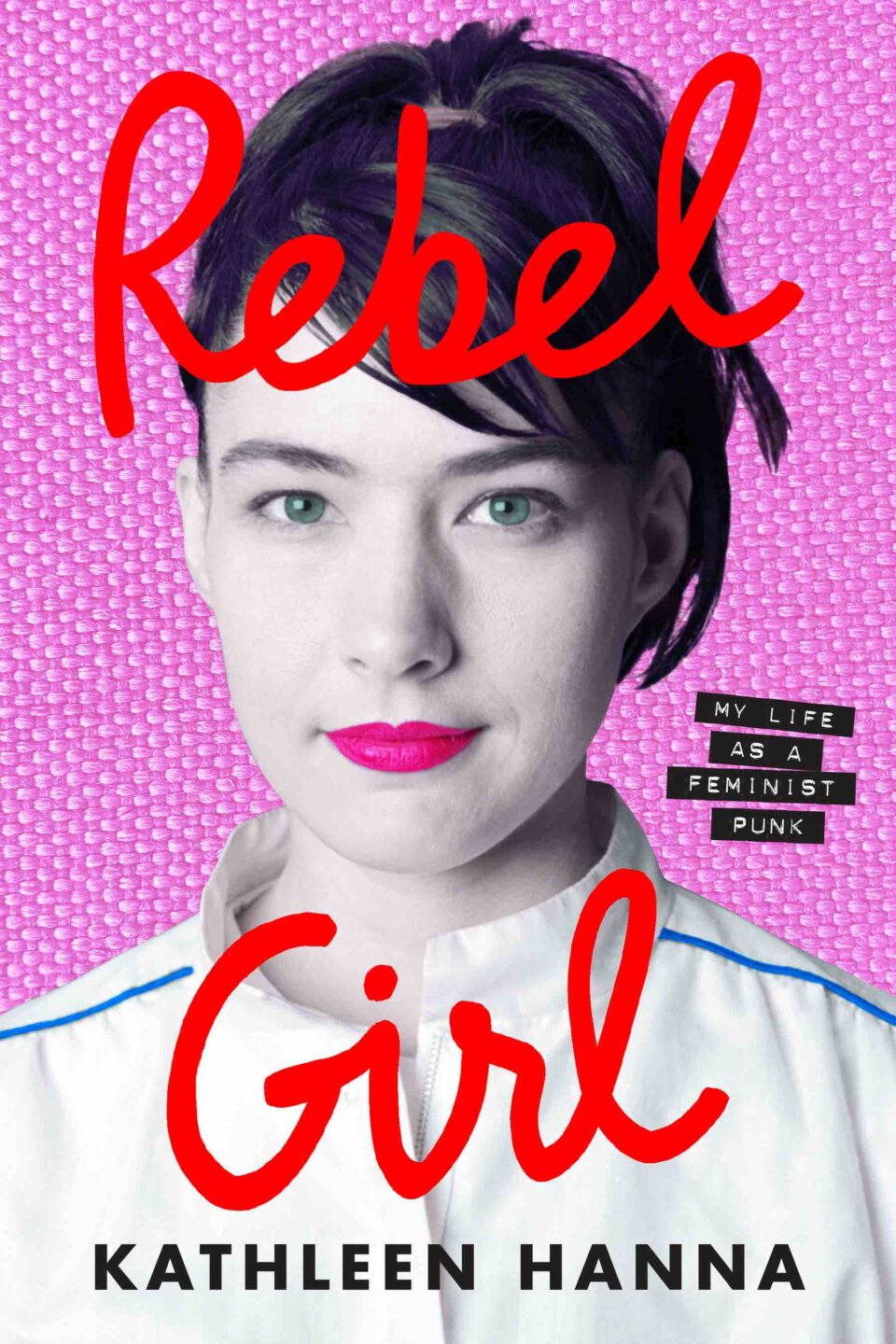
Rebel Girl: My Life as a Feminist Punk by Kathleen Hanna
Kathleen Hanna has been a part of some of the most legendary music scenes of the modern era: She was friends with Kurt Cobain during Nirvana’s early days, hung out with Dischord Records bands in DC during the heyday of Fugazi, and was a progenitor of the riot grrrl movement in Olympia, Washington via her band Bikini Kill. But instead of just listing all of the milestone moments of her musical career, Rebel Girl delves deeply into the gender and familial dynamics that shaped her journey, including the adversity she overcame from both inside and outside of the punk scene. The throughline of Rebel Kill is Hanna’s ability to continually transform her trauma into authentic art, whether it’s visual, musical, or performative. Even more striking may be the fact that despite her myriad accomplishments, Hanna is also able to critique her past self as she strives to create an inclusive community for the next generation of progressive punks. — Jonah Bayer
Read our interview with Kathleen Hanna about Rebel Girl here.
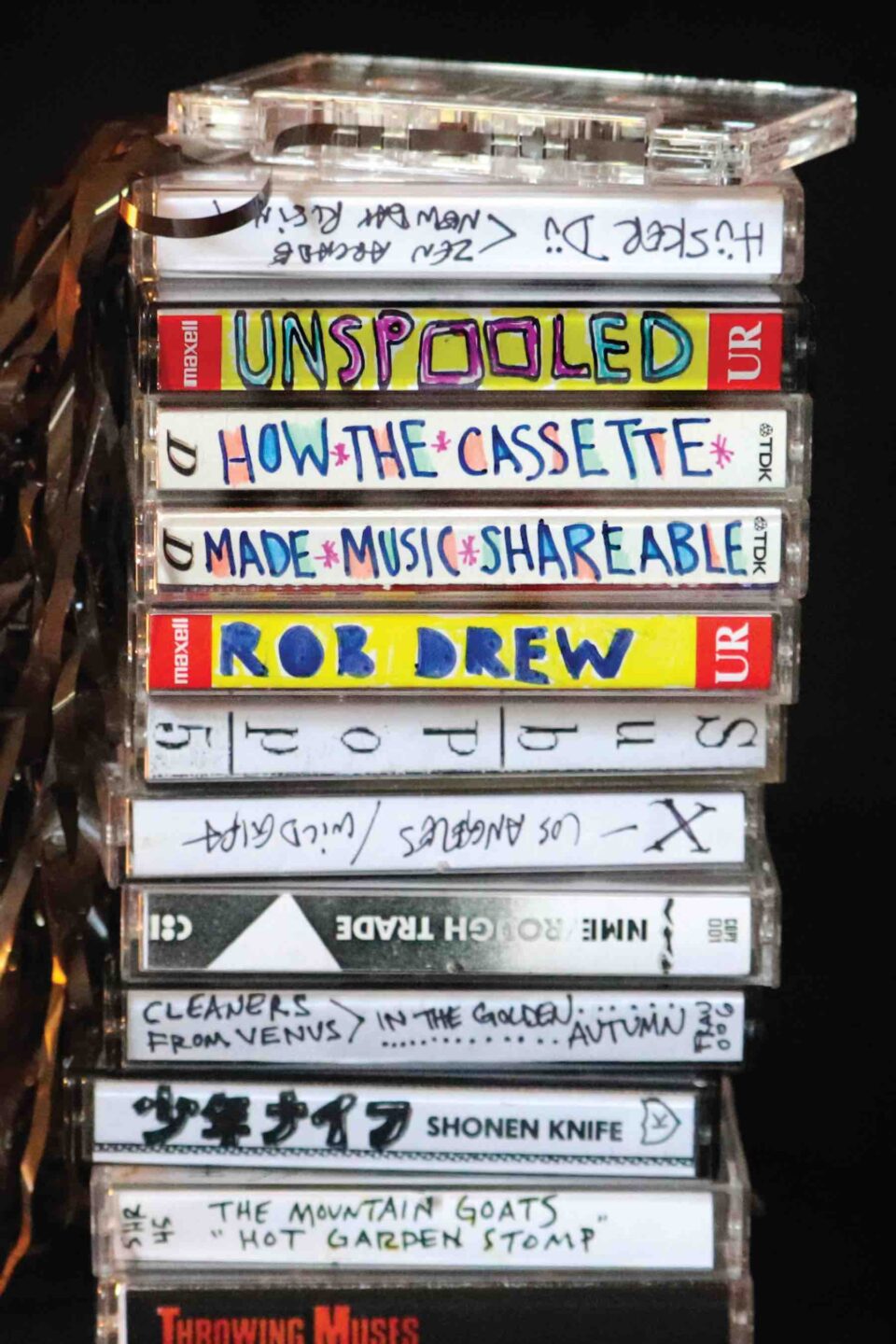
Unspooled: How the Cassette Made Music Sharable by Rob Drew
Think of communications professor and academic/author Rob Drew as you would a high school boyfriend who used to send out tensely curated, way romantic, message-in-the-music mixtapes to the women he hoped to woo. Or think of Drew as the post-punk guy buying homemade Maxell-dubbed cassettes from the local indie bands that he loved growing up out of respect for their DIY tenacity. Both of these characters exist within the taut, heated pages of Unspooled: How the Cassette Made Music Sharable, his second over-stuffed book of emotional ethnographic studies following Karaoke Nights and its beyond-pop cultural reach into singing en masse. Delivering and making music without gatekeepers—where the one holding the “record” and “edit” buttons at bay is the boss—is the heart-palpitating thing that links the mixtape artisans of Unspooled; that and the un-glamorous mystery of finding the perfect musical moment to complete that certain love/hate/mournful/cheery feeling. Plus, Drew pays respect to early C-90 tape avatars such as Op Magazine and the world of zines that existed when he was a kid still scribbling love notes and funky collages across each plastic cassette box. — A.D. Amorosi
Read our interview with Rob Drew about Unspooled here.
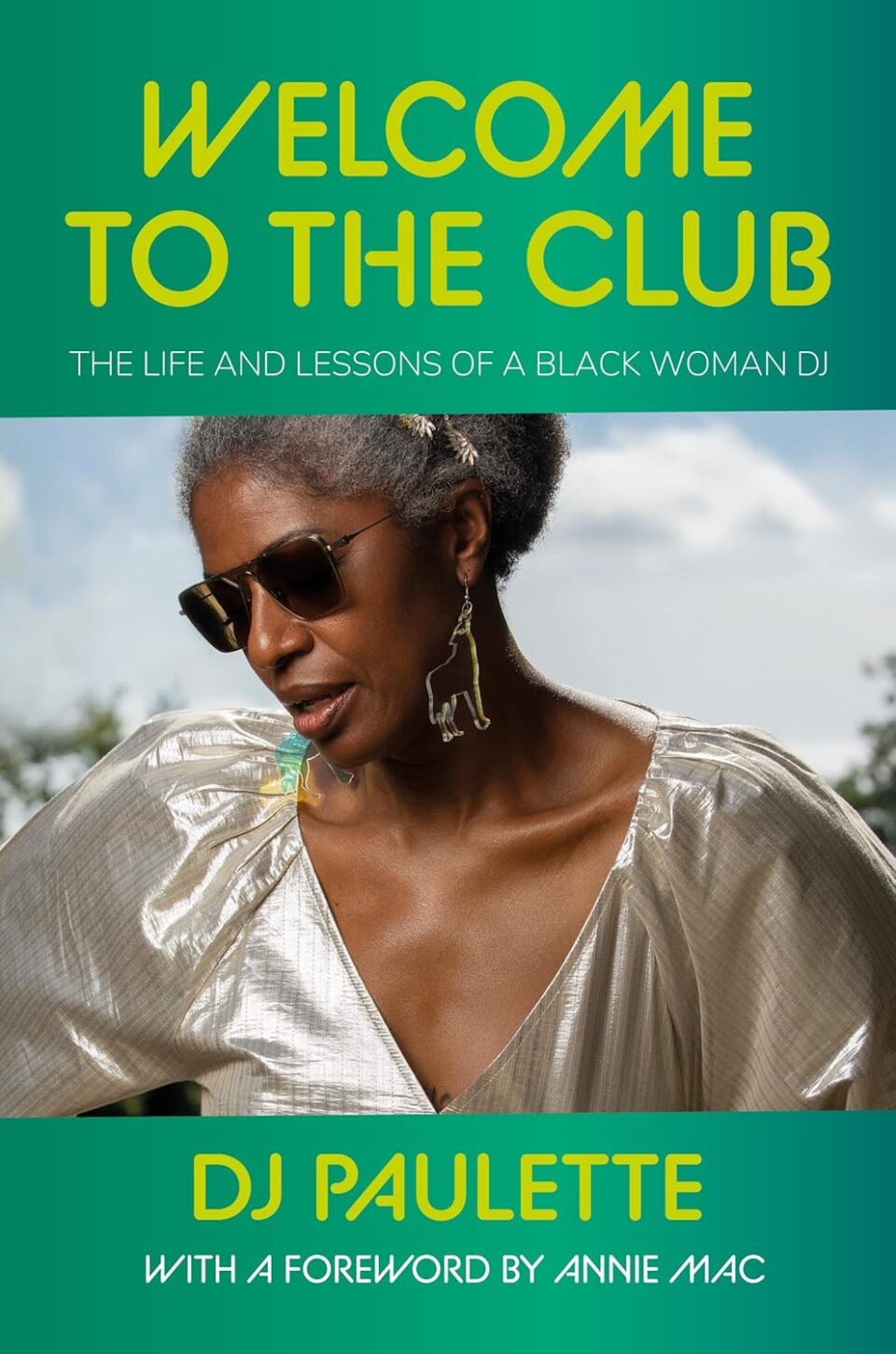
Welcome to the Club: The Life and Lessons of a Black Woman DJ by DJ Paulette
Considering the visceral and dynamic nature of dance music and club life, books that focus on this topic tend to either become overly academic in their granular dissection or lose themselves in the narrowly relatable and ultimately repetitive storytelling. DJ Paulette’s slim and speedy Welcome to the Club: The Life and Lessons of a Black Woman DJ is neither of these things. A longtime DJ who’s made her mark in her native UK as well as in key cities across the globe, if there’s one thing that can be said about Paulette, it’s that she’s been in the trenches for decades. It’s only in recent years that she’s been getting her due, including being awarded DJ Mag’s Top 100 Lifetime Achievement Award in 2022. Welcome to the Club illustrates the graft it took, the barriers she broke, her perseverance that didn’t waiver, and the small victories that kept her working. The book also sheds light on the hardships she faced, the blockades that were thrown up in her path, and the mental health toll she dealt with during the pandemic. DJ Paulette’s incisive writing skills and rapid style keep the story moving, just as deftly as she keeps dancefloors moving. — Lily Moayeri
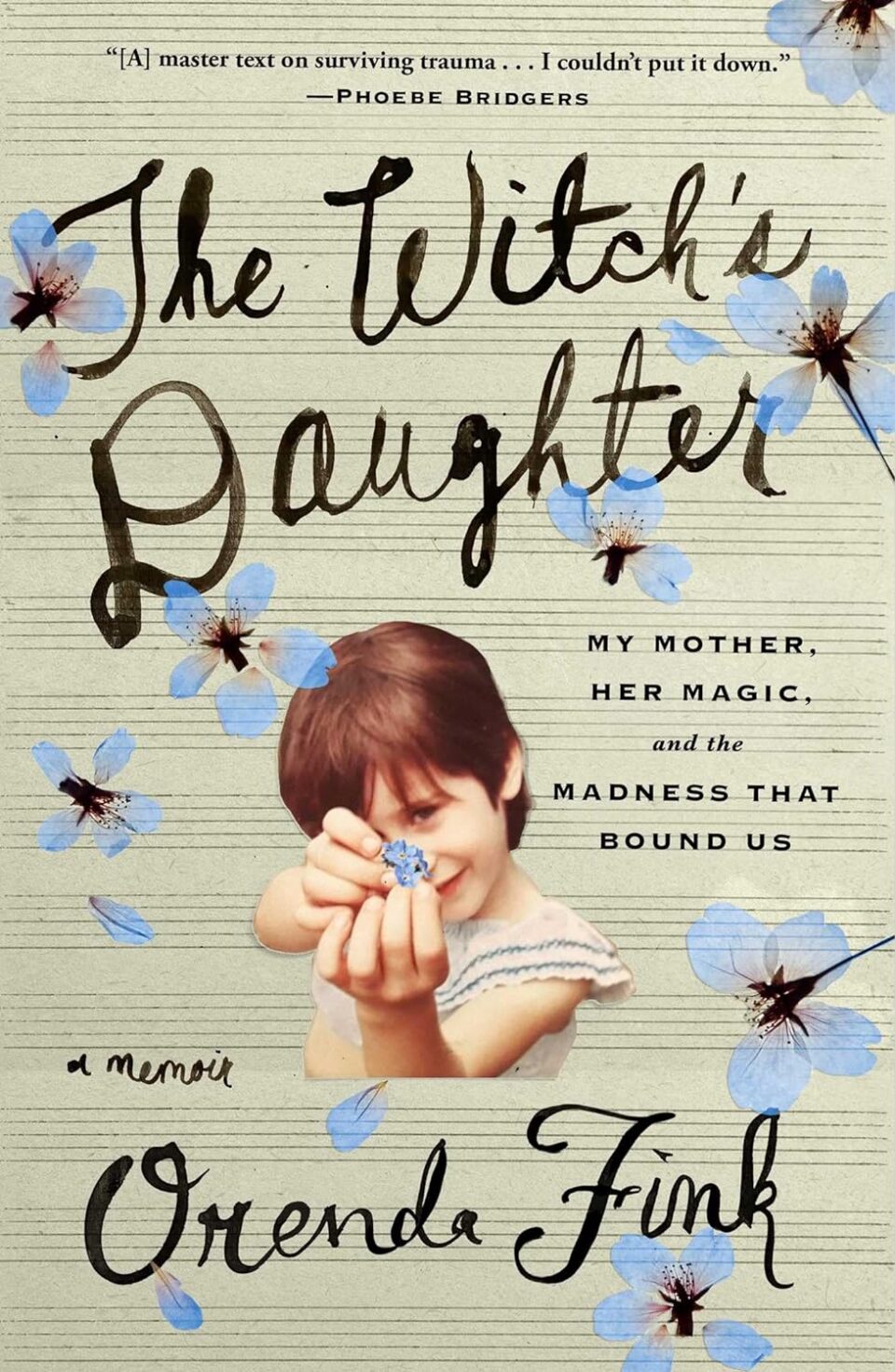
The Witch’s Daughter: My Mother, Her Magic, and the Madness That Bound Us by Orenda Fink
The Witch’s Daughter is not your typical music memoir. Written by Orenda Fink (best known as one half of the dream-pop act Azure Ray), the book centers around her complex family relationship and the ways her mother’s mental illness impacted the musician’s life from early childhood through adulthood. Along the way, Fink recounts her musical journey from getting her start in Birmingham with Little Red Rocket to becoming part of the legendary Saddle Creek scene in the early ’00s. Although her story is unique, Fink—who now practices as a Jungian depth coach—has a very accessible way of expressing her trauma, which will ring true to anyone who’s experienced a complicated parental dynamic. She’s also able to paint vivid scenes of her hometown and the Mojave Desert where she now calls home, which adds a cinematic quality to the narrative that keeps it engaging even during its darkest moments. — Jonah Bayer
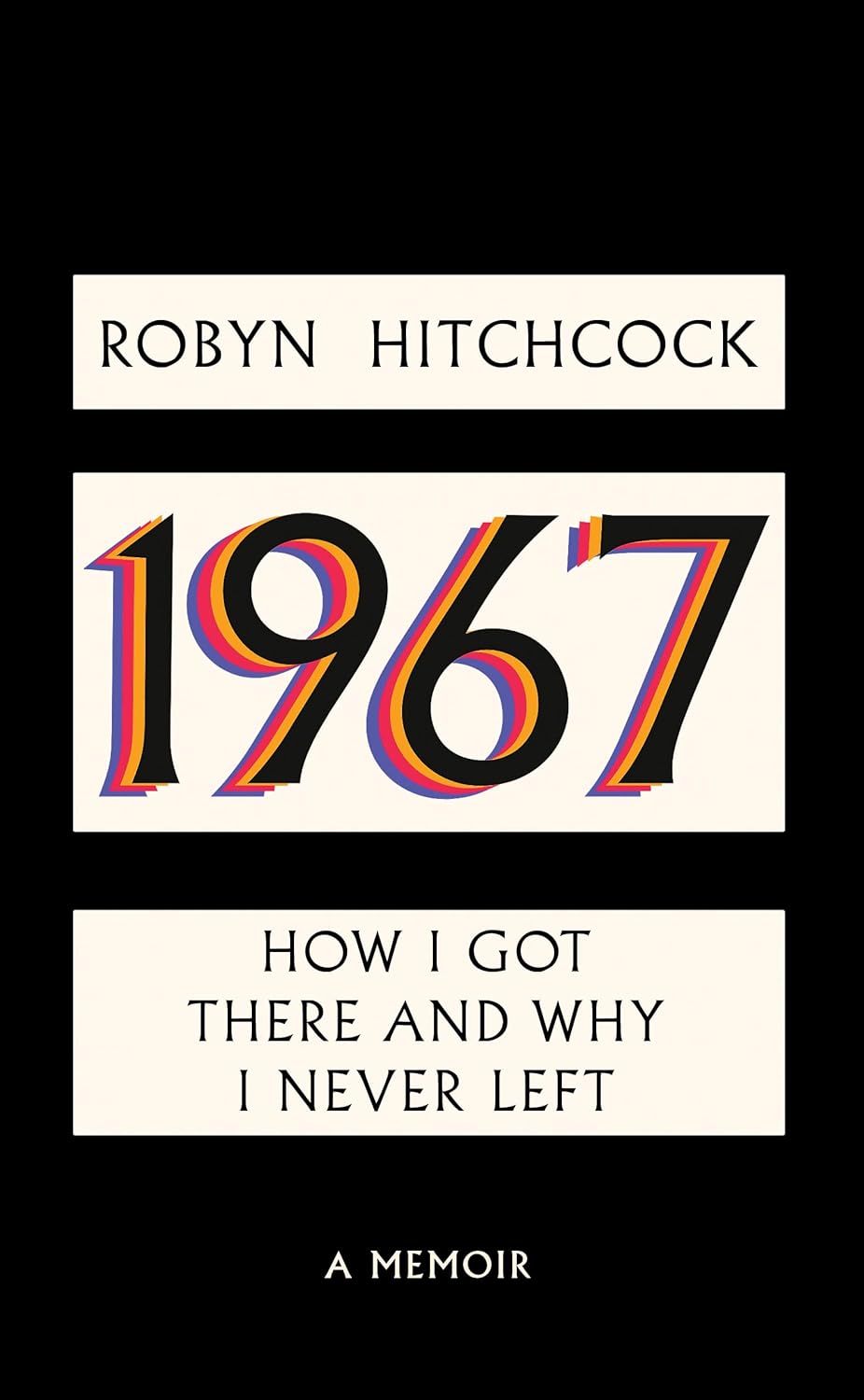
1967: How I Got There and Why I Never Left by Robyn Hitchcock
Throughout his career, Robyn Hitchcock has nearly been as well known for his between-song storytelling as he is for his music. So it makes sense that the former Soft Boy and onetime leader of the The Egyptians and Venus 3 would put pen to paper. In this tome, he tells the story of his formative years at a British boarding school while popular music was experiencing revolutionary changes as he was going through puberty in the year that serves as the book’s title. Along the way, Hitchcock and his new school pals receive visits from then-19-year-old groover art student Brian Eno, who stages happenings that blow their young minds. The audiobook, voiced by Hitchcock himself, is highly recommended, but if you choose to go the traditional reading route, put on Hitchcock’s companion album 1967: Vacations in the Past to fully experience the vibe. — Craig Rosen

